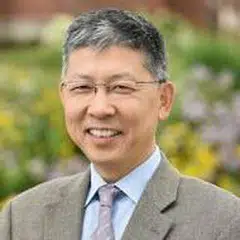Will South Korea's new president take an anti-China stance?
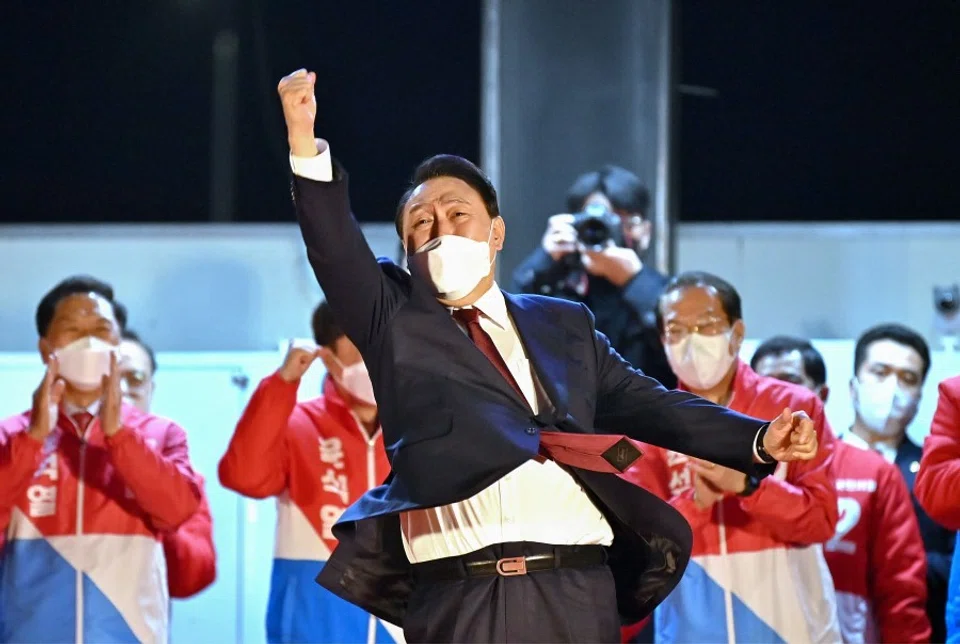
Yoon Seok-youl of South Korea's opposition People Power Party (PPP) has defeated Lee Jae-myung of the ruling Democratic Party of Korea to become the next elected president of South Korea. Yoon's victory has gained attention mostly because of his obvious pro-US leanings and tough stance towards North Korea and China during the election campaign. But will Yoon be a pro-US, anti-China president?
A model of success in balancing diplomatic relations
In South Korean politics, the progressives and conservatives are in constant competition with each other and take turns in office. With the change of president, adjustments would also be made to the country's foreign policy.
While it is difficult to be a small state caught between two big powers, compared with other US allies, South Korea is considered a model of success in balancing its diplomatic relations with the US and China. As a US ally, it would be odd for South Korea not to be pro-US. But for its own national interests, South Korea will not lean towards either the US or China.
Besides significant trade relations, the long-term stability of the Korean peninsula can only be achieved with China's cooperation. So whether the progressives or conservatives are in office, South Korea's foreign relations will be underpinned by the US-South Korea alliance and the need to maintain good relations with China.
South Korea's trade volume with China reaches over US$300 billion annually, which is equivalent to its trade volume with the US, Japan and Europe put together.
During the 20th anniversary of the establishment of China-South Korea diplomatic relations ten years ago, then conservative President Lee Myung-bak was thought to hold pro-US and anti-China views. In January 2012, at the invitation of then Chinese President Hu Jintao, Lee Myung-bak made a state visit to China to celebrate 20 years of friendly bilateral relations. In March that same year, Hu visited South Korea, during which he attended the Nuclear Security Summit in Seoul and was warmly welcomed by Lee Myung-bak.
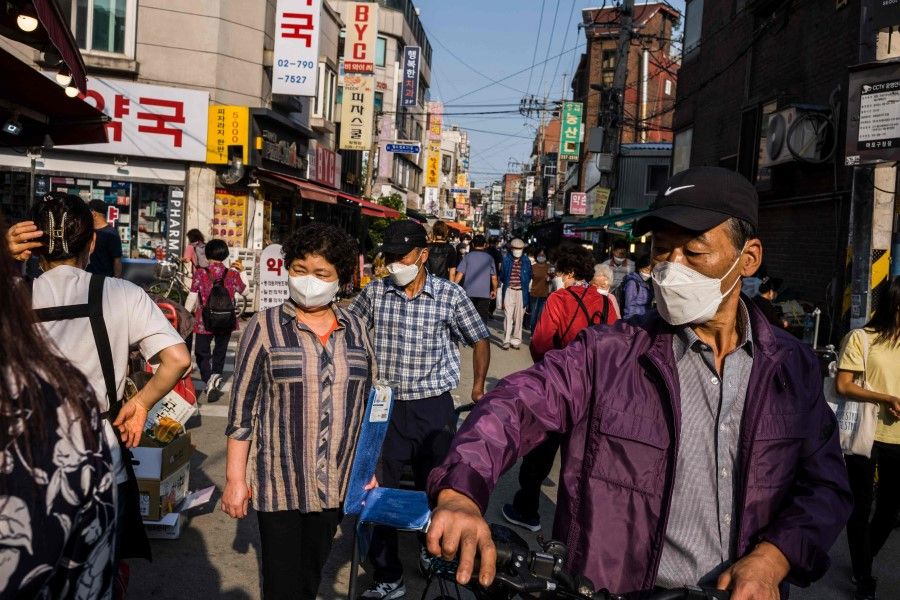
Lee Myung-bak stated that South Korea-China relations had developed rapidly since the establishment of diplomatic ties. In particular, after forging a strategic partnership in 2008, there were frequent high-level and people-to-people exchanges, while trade cooperation had achieved positive results. South Korea was confident about China's growth and looked forward to building a closer and stronger strategic partnership for common prosperity, and to make a greater contribution to promoting peace and progress in Northeast Asia and the world. He hoped to step up strategic dialogue with China and deepen mutual trust, as well as to launch talks on a free trade agreement (FTA) as soon as possible and create favourable conditions for Chinese companies to invest in South Korea.
Today, the China-South Korea FTA has long been implemented, and trade with China plays an important part in the South Korean economy. China is South Korea's largest trading partner and import/export market by far. South Korea's trade volume with China reaches over US$300 billion annually, which is equivalent to its trade volume with the US, Japan and Europe put together.
In 2015, Park Geun-hye, another conservative president, attended a military parade in Beijing to commemorate the 70th anniversary of the end of the Second World War and the war against fascism. She was the only leader among the Western camp and US allies to attend.
Being pro-US and friendly to China is in line with South Korea's national interests.
In line with national interest
All this shows that we cannot simply think of conservative presidents as pro-US and anti-China. The US and China are the most important countries in South Korea's foreign relations. The South Korean president has to balance relations with the US and China for South Korea's security and economic interests - election rhetoric will not necessarily represent their actual policies. Being pro-US and friendly to China is in line with South Korea's national interests.
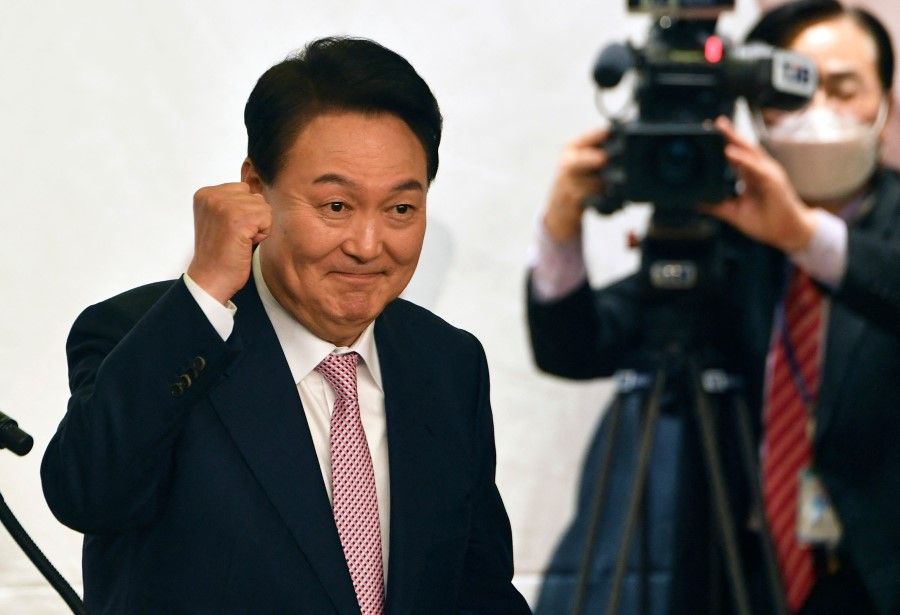
A few hours after Yoon Seok-youl was elected, he spoke on the phone with US President Joe Biden, showing the closeness of US-South Korea relations. Chinese President Xi Jinping also immediately sent a congratulatory message to Yoon, which was relayed by Chinese ambassador to South Korea Xing Haiming on 11 March. Xi said that China was willing to deepen friendly cooperation with South Korea to promote the stable and long-term development of the China-South Korea strategic cooperative partnership, and to bring welfare to the two nations and peoples.
Yoon thanked Xi for the message and said that he hoped to meet Xi soon after taking office. He highlighted that the PPP has always valued South Korea-China relations, and diplomatic ties were established in 1992 during the time that the Democratic Liberal Party - the predecessor of the PPP - was in office. He hoped that both sides would draw on the opportunity of the 30th anniversary of establishing diplomatic ties to enhance high-level exchanges, strengthen exchanges and cooperation in various fields and improve bonds between the two peoples. Yoon said he was certain that South Korea-China relations would reach new heights.
Immediate challenges for Yoon's presidency
It can be expected that during Yoon's term, high-level exchanges and trade cooperation between China and South Korea will continue to strengthen and deepen, and South Korea will also continue to balance its diplomatic relations with the US and China.
This election in South Korea drew in the votes of over 75% of eligible voters, but in the final vote count, there was only a margin of 0.73 percentage points between the two candidates. Clearly, the priority for Yoon is to heal the fractured South Korean society and address the people's concerns, such as rising inflation and high youth unemployment, as well as social issues due to the impact of the pandemic.
Yoon will face the major challenge of improving relations between the Chinese and South Koreans.
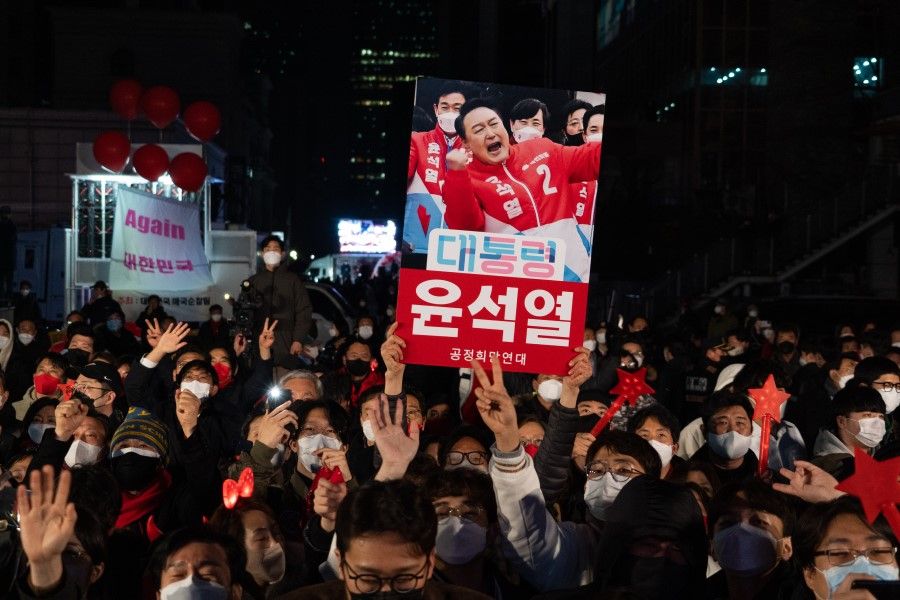
South Korean presidents stay in office for a five-year term, with no consecutive term allowed. Uniting the people and handling domestic issues will be Yoon's biggest challenge when he takes office in May.
In terms of foreign relations, with the US and South Korea facing domestic pressures from the conservatives, the Yoon administration might make adjustments to its strategy towards North Korea and China accordingly. It will be worth observing how he will do so without hurting South Korea's interests or sparking tensions in the Korean peninsula. Furthermore, exchanges between the people of China and South Korea are limited right now due to the THAAD incident and the pandemic, thus straining friendly relations. In fact, strong anti-China sentiment is brewing in South Korea. Yoon will face the major challenge of improving relations between the Chinese and South Koreans.
